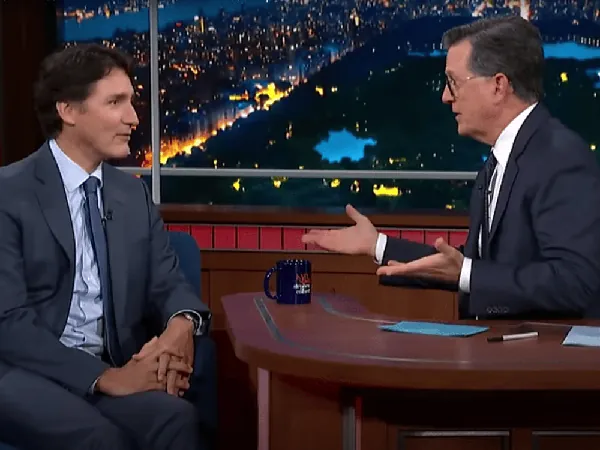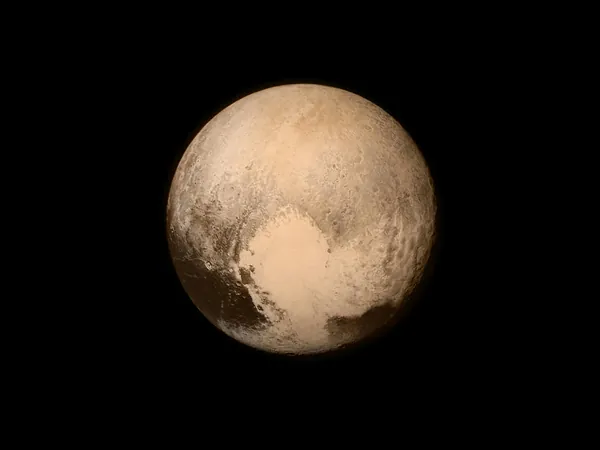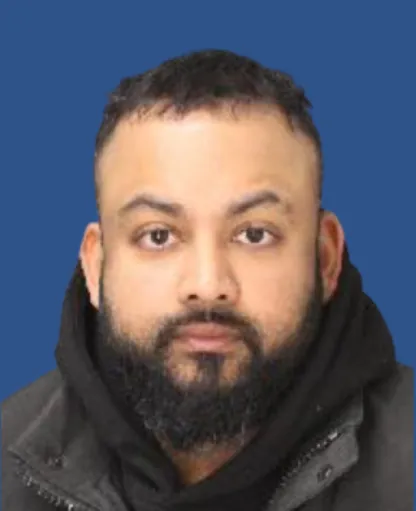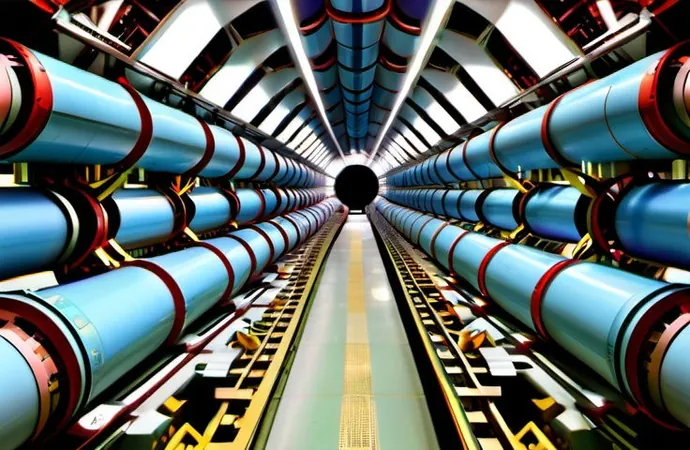
Justin Trudeau Takes Center Stage on Stephen Colbert's Late Show: A Mix of Charm and Political Strategy
2024-09-24
Author: Charlotte
Justin Trudeau Takes Center Stage on Stephen Colbert's Late Show: A Mix of Charm and Political Strategy
Prime Minister Justin Trudeau made a notable appearance on "The Late Show with Stephen Colbert," providing an opportunity for him to woo audiences both in Canada and the United States as he prepares to navigate a turbulent political landscape back home. With a crucial non-confidence motion looming in the House of Commons this week, Trudeau's late-night visit was as much about self-promotion as it was about promoting Canada.
Though the interview was characterized by a light atmosphere, Trudeau didn’t shy away from canvassing the differences between Canada and the U.S. One significant moment came when he made a pointed remark regarding American healthcare, stating, “Americans wouldn’t have to cross the 49th parallel to buy cheaper Canadian drugs if the U.S. had universal health care.” This statement drew applause from the studio audience but overlooked pressing issues in Canada’s own healthcare system, including emergency room overcrowding and a shortage of family doctors.
Trudeau seized the opportunity to showcase Canada on a global stage. He stated, “When Canadians show up, uh, people are usually sure we’re not there to, you know, impose, conquer. We’re really there to help.” His comments serve as a veiled critique of U.S. foreign policy, emphasizing Canada’s reputation for diplomacy and peacekeeping.
The segment was recorded during Trudeau's trip to New York, where he attended the 78th United Nations General Assembly alongside world leaders. Ratings were high, with approximately 484,000 Canadians tuning in. The banter began with light-hearted jokes about Canadian stars, providing a cozy backdrop for the prime minister's policies.
When asked to sell Canada, Trudeau touted its picturesque landscapes and diverse populace, insisting, “it’s the people” who make Canada a remarkable nation. He also highlighted the country’s geographical advantage, mentioning its three coasts: east, west, and the Arctic.
However, Colbert didn’t hesitate to touch upon contentious issues, referencing Canada’s geopolitical clashes over undersea resources with Russia. Trudeau acknowledged this as a “bit of a challenge,” prompting Colbert to quip, “That is a Canadian understatement, if I ever heard it, sir.”
The conversation then veered into Trudeau's diplomatic efforts, including a discussion on Haiti that deftly incorporated humor about past controversial remarks from Donald Trump. As the dialogue progressed, Trudeau emphasized Canada's identity as a "mosaic," as opposed to the American "melting pot," promoting cultural plurality as a core Canadian value.
Colbert pressed Trudeau on some of the lighter disputes between the two nations, including softwood lumber tariffs and bacon terminology. Despite the opportunity to critique his political rivals, Trudeau chose to maintain a broader overview, suggesting that while Canada has its challenges, significant successes—like universal healthcare—were achieved through hard work.
With increasing pressure from rivals who are currently leading in polls by 17 points, the host pointedly reminded Trudeau that a vote could potentially oust him. Trudeau acknowledged the frustrations facing Canadians struggling with rising costs of living, including groceries and rent, affirming, “People are hurting.”
As the conversation came to a close, Colbert highlighted the influence of Trudeau's father, Pierre, a former four-time prime minister. The younger Trudeau cleverly noted that his father’s terms were not consecutive, hinting at the weight of expectations upon him. The question remains: will Justin Trudeau succeed in securing consecutive terms, and can he surpass his father’s legacy? Only time—and the Canadian electorate—will tell.









 Brasil (PT)
Brasil (PT)
 Canada (EN)
Canada (EN)
 Chile (ES)
Chile (ES)
 España (ES)
España (ES)
 France (FR)
France (FR)
 Hong Kong (EN)
Hong Kong (EN)
 Italia (IT)
Italia (IT)
 日本 (JA)
日本 (JA)
 Magyarország (HU)
Magyarország (HU)
 Norge (NO)
Norge (NO)
 Polska (PL)
Polska (PL)
 Schweiz (DE)
Schweiz (DE)
 Singapore (EN)
Singapore (EN)
 Sverige (SV)
Sverige (SV)
 Suomi (FI)
Suomi (FI)
 Türkiye (TR)
Türkiye (TR)